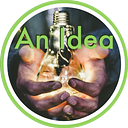The Writer’s Journey
On Tech, Process, and Guidance for Writers
A writer’s most important tool is the brain; no computer is going to do your writing for you. That said, there are many utilities out there of which one might avail oneself to write better and more productively.
The most obvious and essential electronic aid might be the word processor but there are plenty of other tools out there, from grammar analyzers to note taking apps. One of the greatest benefits afforded by modern technology, and possibly to what it is most conducive, is organization. No more piles of spiral notebooks, and random napkins with hastily jotted notes stuffed into your pockets. Okay, maybe sometimes, but for the most part such chaos may be avoided through the use of our sophisticated devices — it’s just a matter of finding the right programs to suit your individual needs. In exploring those options, I’ll strive to focus on free alternatives, or at least the best value. I will also disclose that I exhibit a preference for open source. There’s so much out there it can be like finding a needle in a haystack searching for the right product at the right price. The best way to find a needle in a haystack is to use a magnet; maybe this series can serve as yours.
Some people are not going to need anything more than a pencil and a few scraps of paper, for others the challenge is more daunting. Over the course of time I’ll try to cover all the bases, from pre-writing to publication, tentatively outlined as follows:
- Word Processing
- Filing/Organization
- Note-Taking
- Internet/Research
- Editing/Proofreading/Finalizing
- Scheduling/Calendaring
- Plotting/Outlining
- Brainstorming and Prompts
Again, this is a rough overview of general categories. Additional topics may be covered upon request or whim. The point is that there are solutions out there for whatever stage of the writing process is impeding you.
So, for this first installment I’ll give a synopsis of all the above and introduce an in-depth examination that will start at the logical beginning, the first step in story creation: ideas.
With respect to word processing, Scrivener is the much lauded powerhouse. This is so for good reason. At an affordable cost you gain access to many of the features that make long projects more manageable, but there are free alternatives as well, notably yWriter for Windows and Manuskript for Linux.
Organization is where the computer age shines. The ability to swiftly search terms and store files is patently superior to the analogue approach. Unless you have a Herculean capacity for organization, the computer may be your saving grace. Even with the relative ease offered by the digital age, however, developing the best system for you can be a chore; the right software for your individual propensities will help.
Note-taking is essential to most writing projects. Whether it’s simply jotting down your ideas before they slip back into the aether or performing detailed research and meticulous record-keeping, note-taking apps come to the rescue. From simple sticky notes or plain text to feature-rich programs like Evernote and OneNote, note-taking can be simplified with the right program. Maybe you prefer to dictate notes? That’s fine, too. The trick is finding the program that’s right for you and your muse.
In the internet department, little ado is needed. You obviously have a web browser or you wouldn’t be reading this. Still, I’ll go into slight detail here and, more importantly, the research aspect warrants particular attention.
For all the procrastinators out there, goal trackers, calendars, and various scheduling apps can be a safety net. There are a plethora of free progress trackers, timers, and other tools to keep you on-task and, if you’re among the ranks of the absent-minded authors, there are apps to help you keep tabs on your submissions, deadlines, and intellectual property rights; to be fair, if you do enough of these you’re going to need some method of keeping track, absent-minded or not, and doing so electronically makes sense.
In the next installment we will begin our evaluation of tools and techniques to get you started, including mind maps, writing prompts and where to find them, and the underpinnings of your path to publication.

